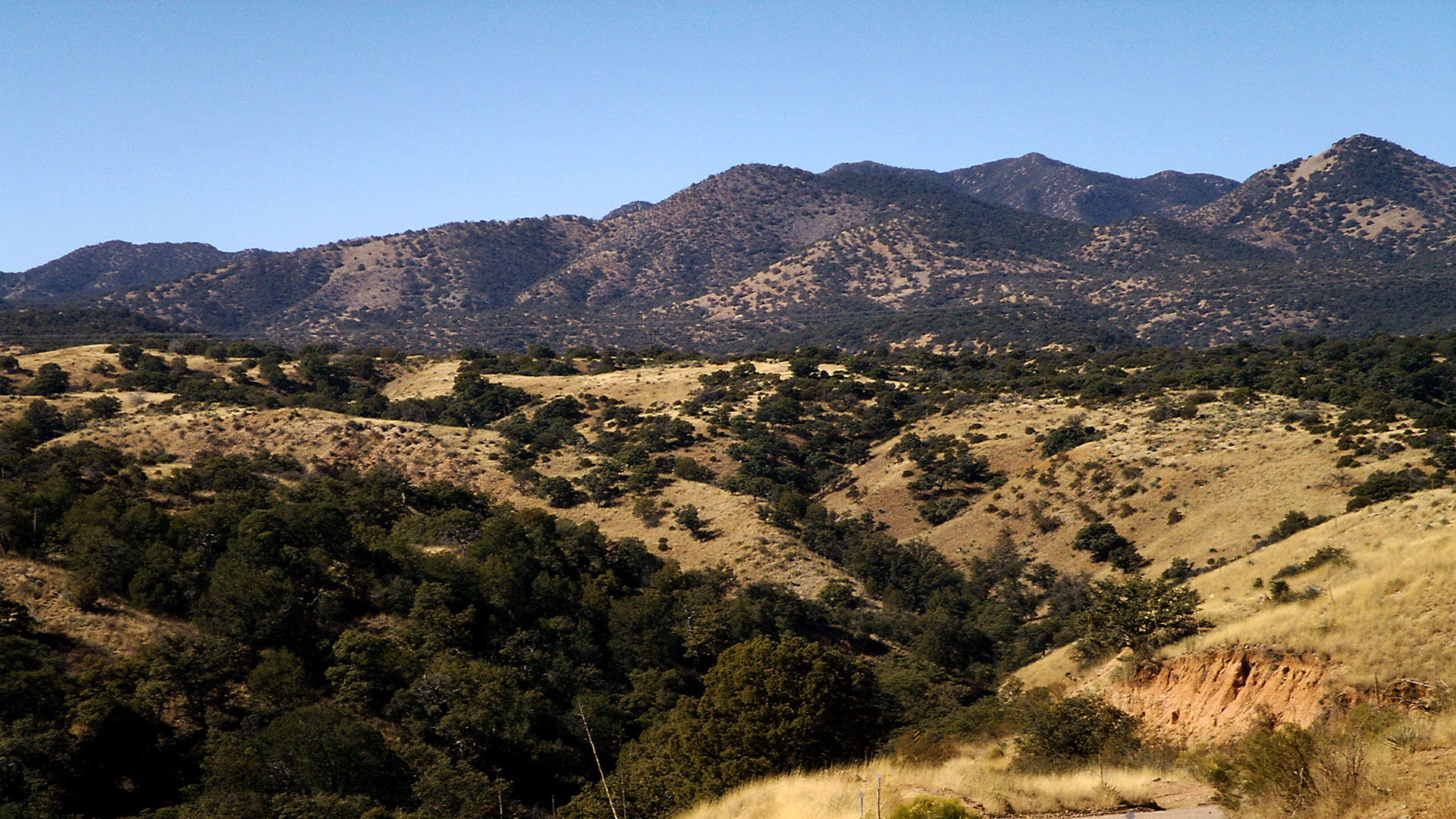 The Patagonia Mountains in Southern Arizona, taken in January 2006.
The Patagonia Mountains in Southern Arizona, taken in January 2006.
A Tucson federal judge ruled against an injunction that would have blocked two exploratory mining projects in Arizona’s Patagonia Mountains.
The two projects are the Flux Canyon Exploration Drilling Project, which is overseen by Arizona Minerals Inc.–a subsidiary of South32, and the Sunnyside Exploration Drilling Project, which is overseen by Arizona Standard LLC–a subsidiary of Barksdale Capital Corporation.
Eight environmental justice groups are suing the U.S. Forest Service, arguing that the two mining projects would disturb over 100 threatened and endangered species and included concerns of groundwater contamination. However, U.S. District Judge Jennifer Zipps said the plaintiffs failed to prove that there would be irreparable harm if there is no preliminary injunction.
“Plaintiffs argue the Sunnyside Project will harm their members’ enjoyment of the undisturbed forest and interest in the preservation of the Mexican spotted owl,” wrote Zipps. “The Sunnyside Project area, however, encompasses only 7.5 of the 1,800,000 acres in the Coronado National Forest. The project also establishes restrictions on the trees which may be removed and requires up to six years of monitoring after the seeding of reclamation areas.”
In her decision, Zipps said that while the groups established that some harm could occur because of the projects, like temporary departure from the endangered Mexican Spotted Owl, they did not show irreparable harm.
“Plaintiffs contend chronic noise for up to seven years would likely cause the owl to permanently abandon their territories for the duration of the project,” she said. “A decision on the merits would likely take months, perhaps a year, but certainly not seven years. It is unlikely the owl will face the irreparable harm Plaintiffs contemplate within this shorter timeframe. Indeed, USFS (United States Forest Service) and USFWS (U.S. Fish and Wildlife Services) concluded the owls will not suffer any significant long-term harm and any owls that depart during the project will likely return to the area when the project ends.”
In regard to groundwater contamination concerns, the plaintiffs argued that the U.S. Forest Service’s “failure to establish baseline groundwater conditions threatens the sole source of drinking water for the Town of Patagonia and all nearby residences.” Zipps disagreed, saying, “the record shows USFS’s analysis of water resources is reasonable.”
The environmental groups filed a notice of appeal to Zipps’ decision. But the Arizona Standard’s Sunnyside Project, one of the two projects in the case, announced they expect to begin work this month.

By submitting your comments, you hereby give AZPM the right to post your comments and potentially use them in any other form of media operated by this institution.